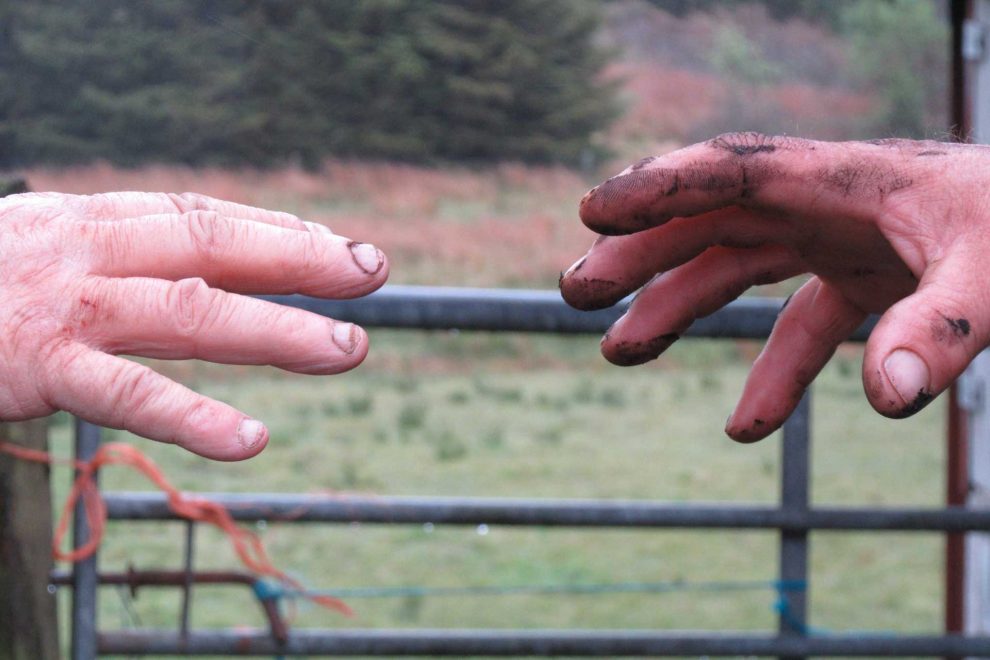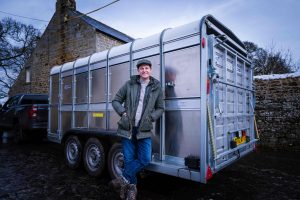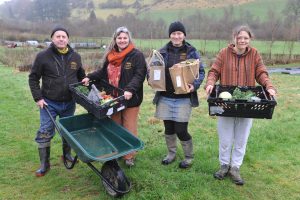THE FARMERS’ UNION OF WALES made a commitment at the Royal Welsh Show last year to continue raising awareness of mental health problems in rural communities and in line with that commitment is continuing the conversation about the wider issues surrounding mental health in rural areas at this year’s Royal Welsh Show.
Hosting a dedicated seminar on Thursday, July 26, at 11am at the FUW pavilion, the Union looks forward to hearing from Alzheimer’s Society Cymru, The Farming Community Network and DPJ Foundation.
Speaking ahead of the event, FUW President Glyn Roberts said: “Mental health – good or bad – has affected us all at some point in our lives. Standing by the commitment we made at the Show last year, I’m pleased to see the excellent line-up of speakers we have with us once again.
“They will be discussing a variety of issues and look at solutions that are available to those who have suffered, are suffering or are supporting someone close to them who is affected by mental health issues, may that be depression, anxiety, Alzheimer’s or any other form of poor mental health. I therefore hope that many of you will be able to join us on the day.”
The discussions are chaired by Lilwen Joynson, Agrisgop leader, who said: “I appreciate that for many farmers, rural businesses and families having a chat about being stressed out and what to do and where to go for help, sits below the to do list of a busy rural enterprise.
“The thing is, if we don’t talk we don’t support and we end up with problems and an industry that isn’t facing up to the reality of how mental health affects us all.
“I want you to think right now of one person who is affected with stress, anxiety or depression it could even be you. Where do they go for support? Very often nowhere and that’s why we have been known to be an industry that shuts up and puts up. We have an industry that thinks that a person is soft if we are feeling depressed; we all know that well-oiled phrase “pull yourself together”.
“That’s why as a working practitioner I am keen to push forward and pull together and talk about mental health – let’s take the stigma out of mental health in farming. And I hope to see many of you at the seminar.”
David Williams, Wales Regional Director for The Farming Community Network, who manages a group of 40 Welsh volunteers and is the FCN’s lead contact with the Welsh Government on farming-related issues said:
“It is very easy to underestimate just how important the mind is when it comes to farming. Along with the body, it is, without doubt, the best bit of kit a farmer can have.
“However, if your mind and body are not well-maintained, the consequences can be disastrous. There is a significant amount of stress and anxiety in farming at present. Concerns about the unpredictable weather, animal disease, support payments and the impact of Brexit are weighing on the minds of many farmers throughout Wales.
“Coupled with the loneliness and isolation that comes with farming means that farmers and agricultural workers are highly susceptible to poor mental wellbeing. Failing to deal with poor mental wellbeing could lead to all sorts of issues. It could lead to the farm running inefficiently, a serious injury, relationship breakdowns, poor physical health and, even worse, it could lead to suicide.
“Thankfully, the stigma surrounding mental wellbeing in farming is slowly reducing, thanks to the incredible support services that are now available to the farming community. One of the aims of the FUW’s “Let’s Talk” seminar, is to help farmers better understand mental health, identify poor mental wellbeing in both themselves and their loved ones and signpost them to the most appropriate support services for their situation.
“I would encourage anyone who has a passion for rural life and wants to support the farming community to attend this seminar at the FUW pavilion.”
Emma Picton-Jones, who set up the DPJ Foundation after her husband took his own life July 2016, will provide an update on the work of the foundation, which aims to support people in agriculture and in the agricultural community by reducing the stigma that surrounds mental health and supporting them by signposting them to support systems that are available.
She said: “We have set up a talking therapies service specifically for people in the rural communities, men in particular who struggle with their mental health and we are currently running a pilot year in West Wales and have taken on on average 1 client per week for each week we have been running. That just shows how important mental health support is in our communities and I hope many of you can join us for this seminar at the Royal Welsh Show to explore what help is available.”
Sue Phelps, Alzheimer’s Society Cymru Country Director, said: “Alzheimer’s Society Cymru estimate that there are 17,000 people affected by dementia living in rural communities across Wales. They face a specific set of challenges and barriers; these include access to specialist support, peer support and a lack of awareness and understanding of dementia within the community.
“Loneliness is a real problem for people with dementia. Alzheimer’s Society research states that a third of people report to have lost friends since their diagnosis. Two thirds of people with dementia remain in their communities, but many feel trapped in their own homes – with almost one in 10 only leaving the house once a month. Carers are also more likely to feel isolated and unsupported.
“Our Side by Side service supports those affected by dementia to remain part of their community and continue to do the things they love. This can help to reduce feelings of isolation and loneliness which can lead to depression and other mental health related issues. We are particularly keen to recruit volunteers from the Welsh speaking and farming community to Side by Side to help us to keep connected with people living with dementia.
“Alzheimer’s Society Cymru will continue to shine a light on the needs of people affected by dementia in rural Wales, and will be keeping a close eye on the implementation of the Welsh Government’s National Dementia Action Plan, to make sure people in those communities receive the care and support that they are entitled to receive.”


















Add Comment